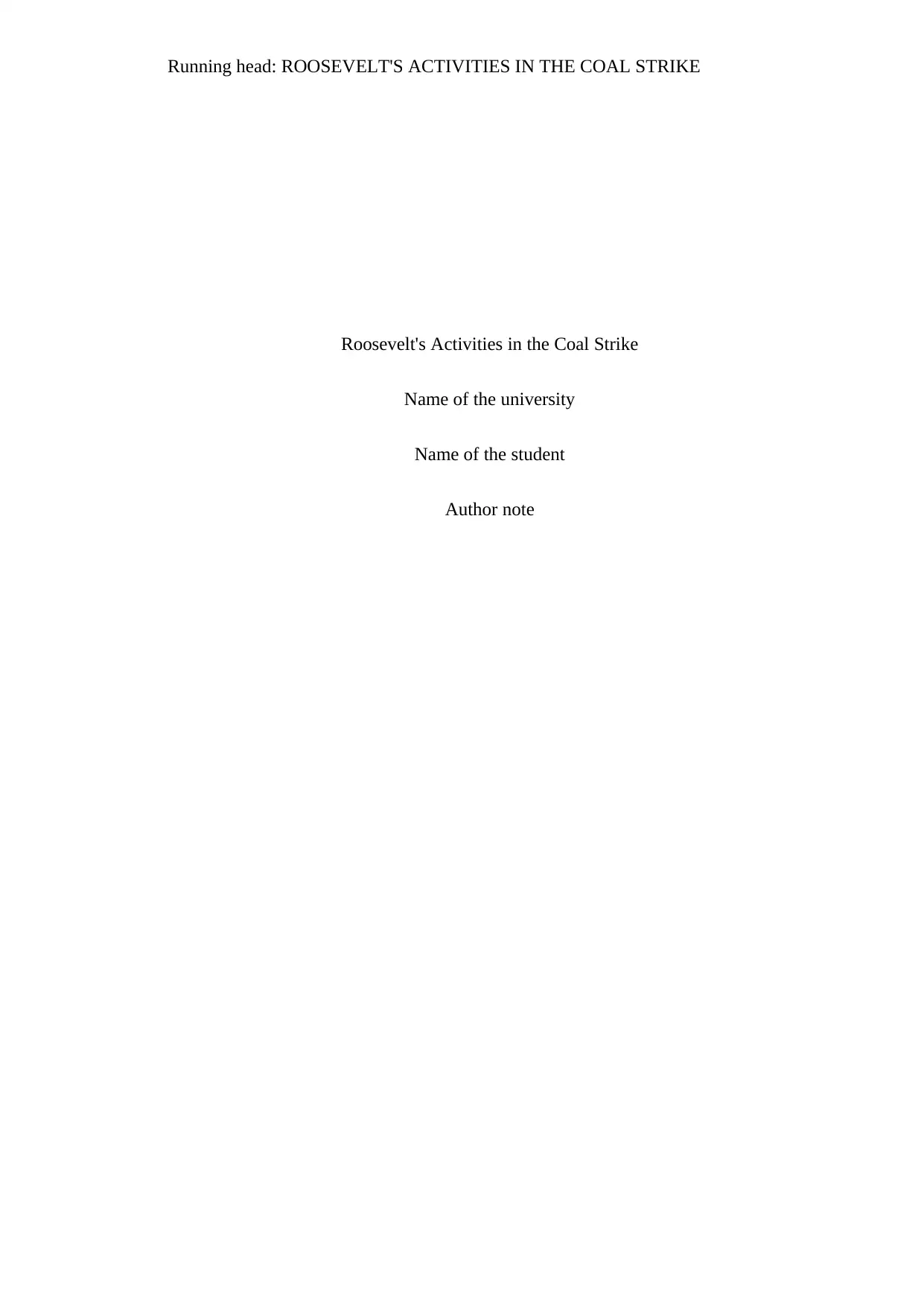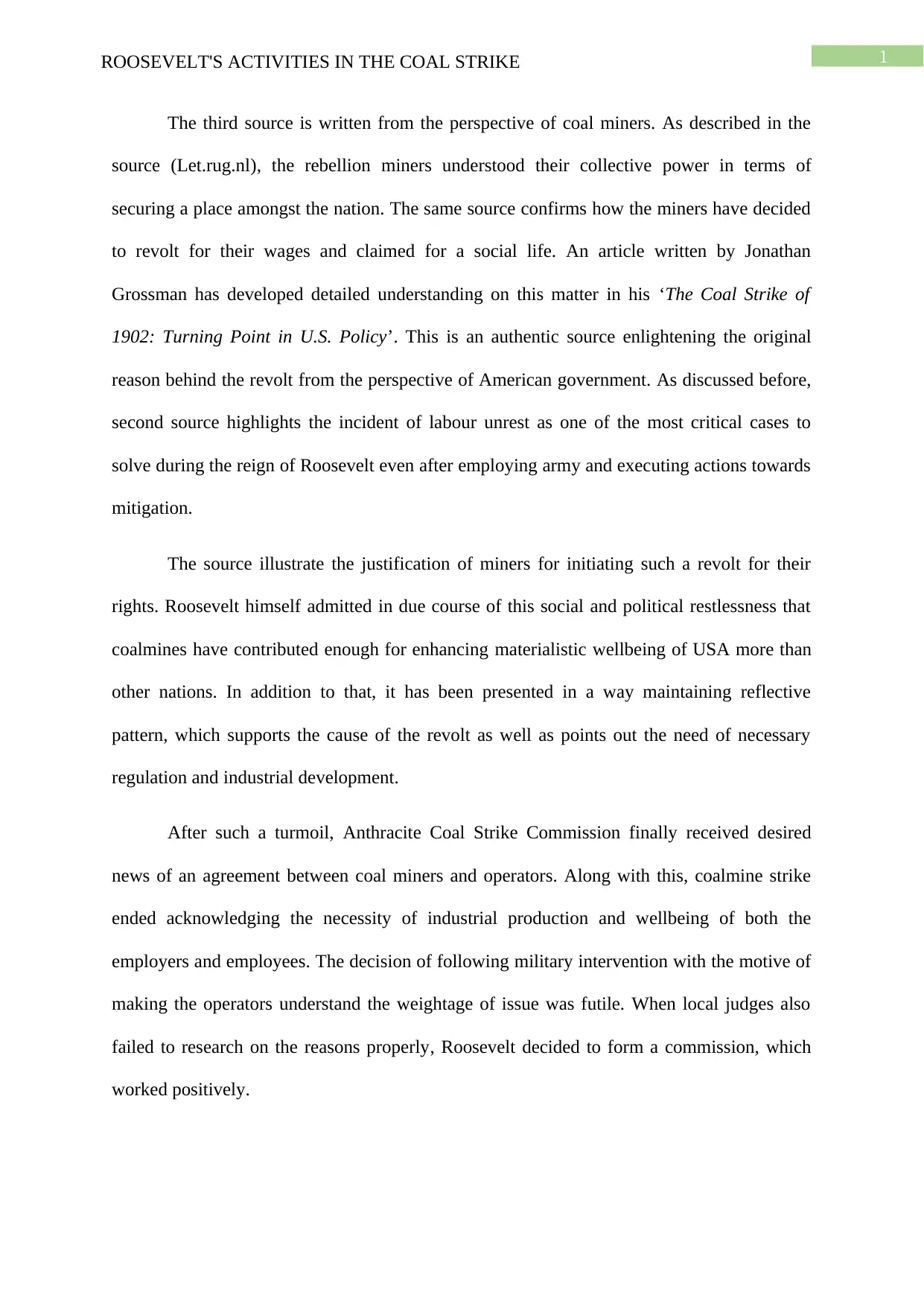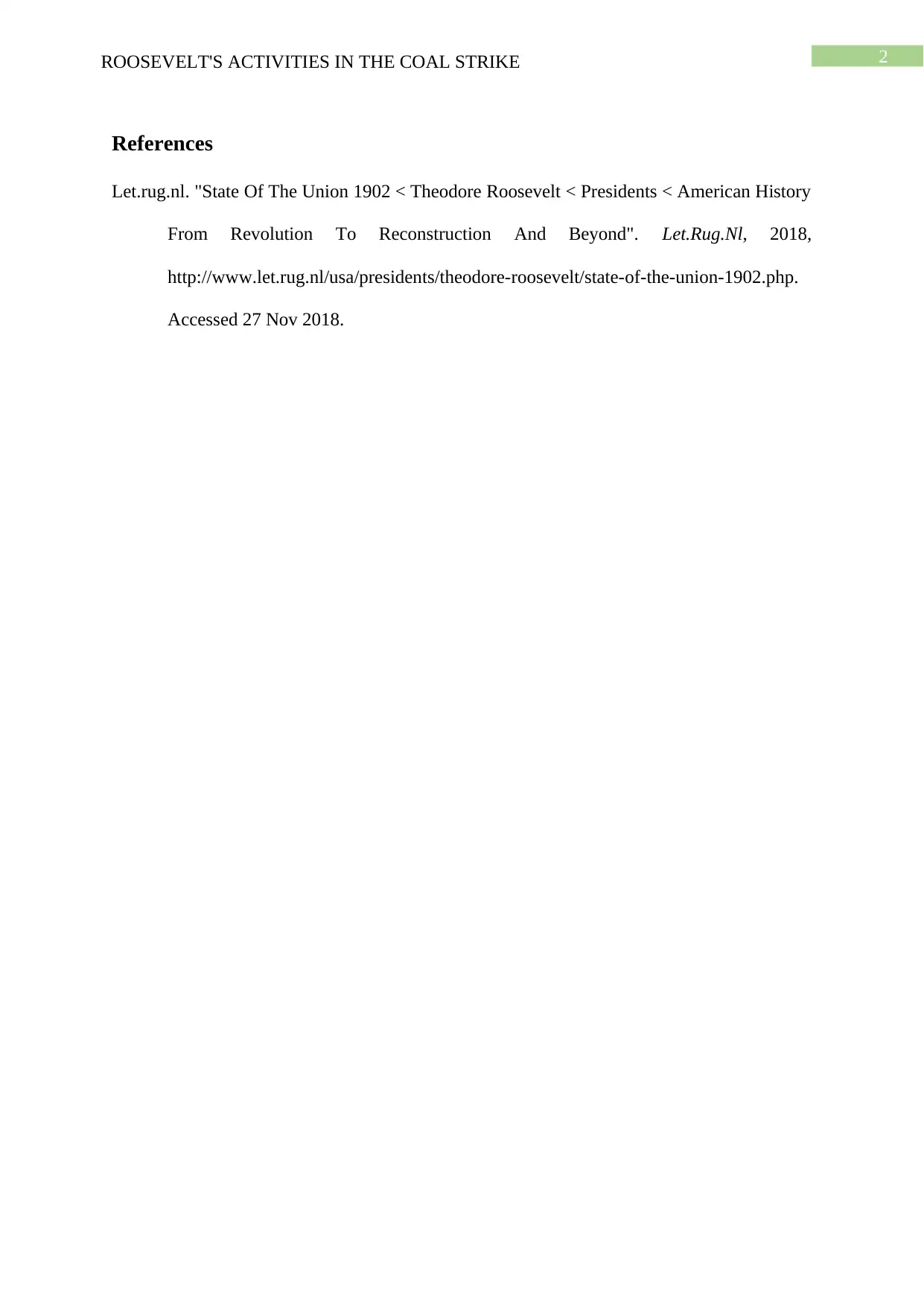Analysis of Roosevelt's Actions in the Coal Strike of 1902
VerifiedAdded on 2021/12/28
|3
|393
|30
Report
AI Summary
This report analyzes President Theodore Roosevelt's actions during the 1902 Coal Strike, focusing on his role in mediating the dispute between coal miners and operators. The report examines the context of the strike, including the miners' demands for better wages and working conditions, and the operators' resistance. It explores Roosevelt's strategies, such as threatening to use the army and ultimately establishing a commission to investigate the issues and propose a resolution. The report draws upon various sources, including historical documents and academic research, to assess the impact of Roosevelt's actions on labor relations and the development of industrial policy. The analysis includes how the strike highlighted the importance of industrial production and the well-being of both employers and employees. It also explores the failure of local judges and military interventions in the context of the strike. The conclusion summarizes the key findings and reflects on the long-term significance of the Coal Strike of 1902.
1 out of 3






![[object Object]](/_next/static/media/star-bottom.7253800d.svg)